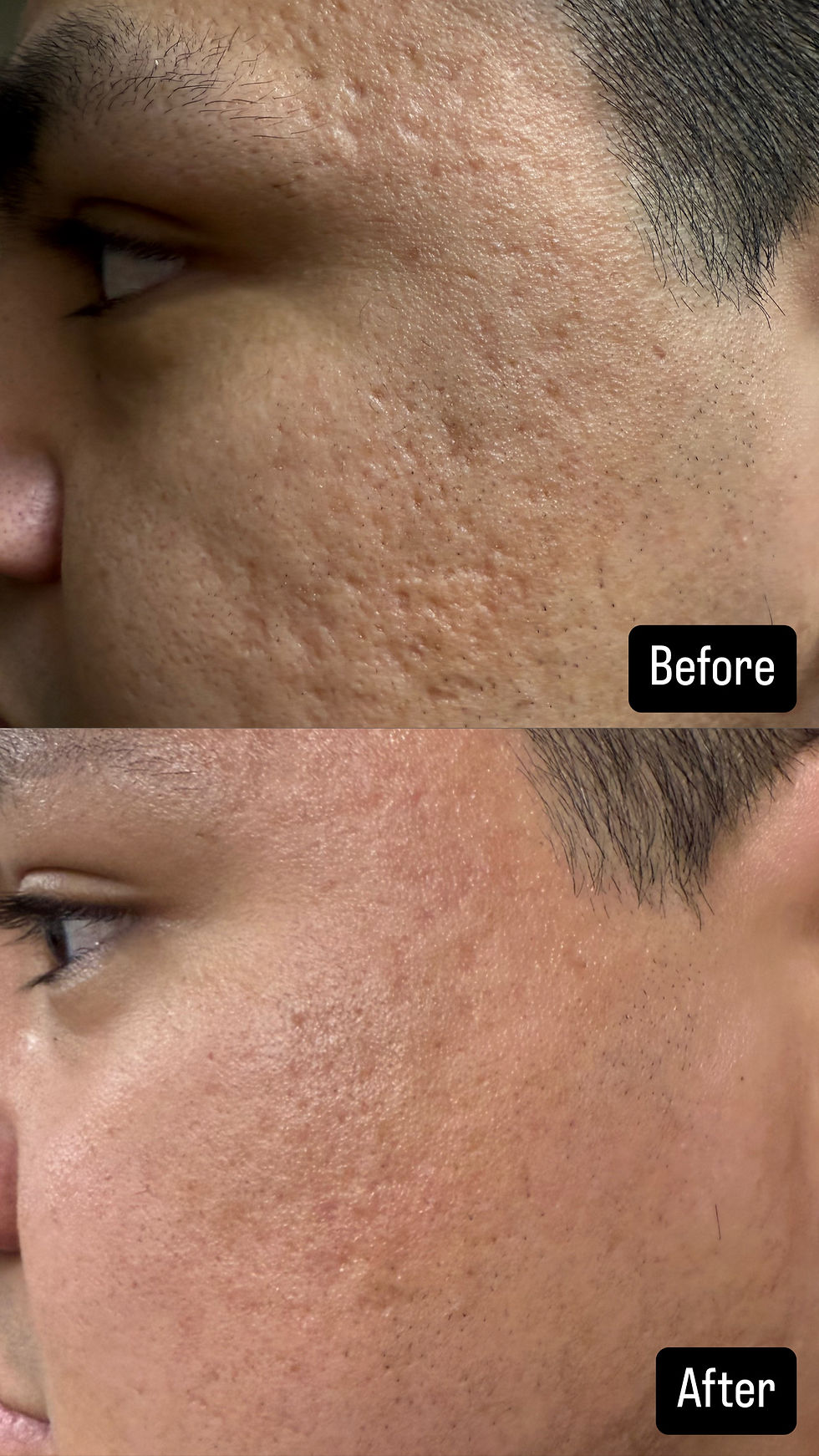Understanding and Treating Acne Scars
- beautymoreva
- Aug 19, 2025
- 2 min read
What Are Acne Scars?
Acne scars form when inflamed acne lesions damage the skin's deeper layers. When the body attempts to heal these wounds, it may produce too much or too little collagen, resulting in different types of scarring. Unlike post-inflammatory hyperpigmentation (dark spots that fade over time), true acne scars involve permanent changes to the skin's texture and structure.
Types of Acne Scars
Atrophic Scars (Depressed Scars)
Ice pick scars: Deep, narrow scars that extend into the dermis, resembling small puncture wounds
Boxcar scars: Wider, box-shaped depressions with sharp, defined edges
Rolling scars: Broad depressions with sloping edges that create a wave-like appearance
Hypertrophic and Keloid Scars (Raised Scars) These occur when the body produces excess collagen during healing, creating raised, thick scar tissue. Keloid scars extend beyond the original wound area, while hypertrophic scars remain within the boundaries of the original lesion.
Professional Treatment Options
ProCell Micro Channeling Therapy
Procell Therapies Microchanneling is a minimally invasive, non-surgical and non-ablative procedure for facial rejuvenation.
Unlike traditional microneedling, which can cause scratching and tearing of the skin, ProCell uses a linear stamping technique, resulting in consistent and clean microchannels—microscopic wounds or injuries.
The treatment utilizes a handheld tool containing tiny wire-based filaments with microscopic channels to exfoliate the skin. What makes ProCell revolutionary is its integration with specialized serums. The Procell Therapies microchannel tips create small channels in the epidermis which have been proven to increase serum absorption by up to 300%.
The serums themselves are remarkable: Highly concentrated synthesized growth factor serums derived from synthesized mesenchymal stem cells which are known to promote scarless healing in an anti-inflammatory environment.

Treatment Benefits and Results
Immediate and Long-term Benefits
Improved skin texture and tone
Reduction in fine lines and wrinkles
Diminished appearance of acne scars
Enhanced overall skin vitality
Reduced hyperpigmentation
At-Home Care and Prevention
While professional treatments are most effective for established scars, consistent at-home care can help prevent new scars and improve overall skin health:
Active Ingredients to Consider
Retinoids: Promote cell turnover and collagen production
Vitamin C: Antioxidant that supports collagen synthesis
Niacinamide: Helps improve skin texture and barrier function
Alpha hydroxy acids (AHAs): Gentle exfoliation to improve surface texture
Sun Protection Daily sunscreen use is crucial, as UV exposure can darken scars and slow healing. Look for broad-spectrum SPF 30 or higher.
Gentle Skincare Routine Avoid harsh scrubbing or picking at active breakouts, which can worsen scarring. Use gentle, non-comedogenic products suitable for your skin type.






Comments